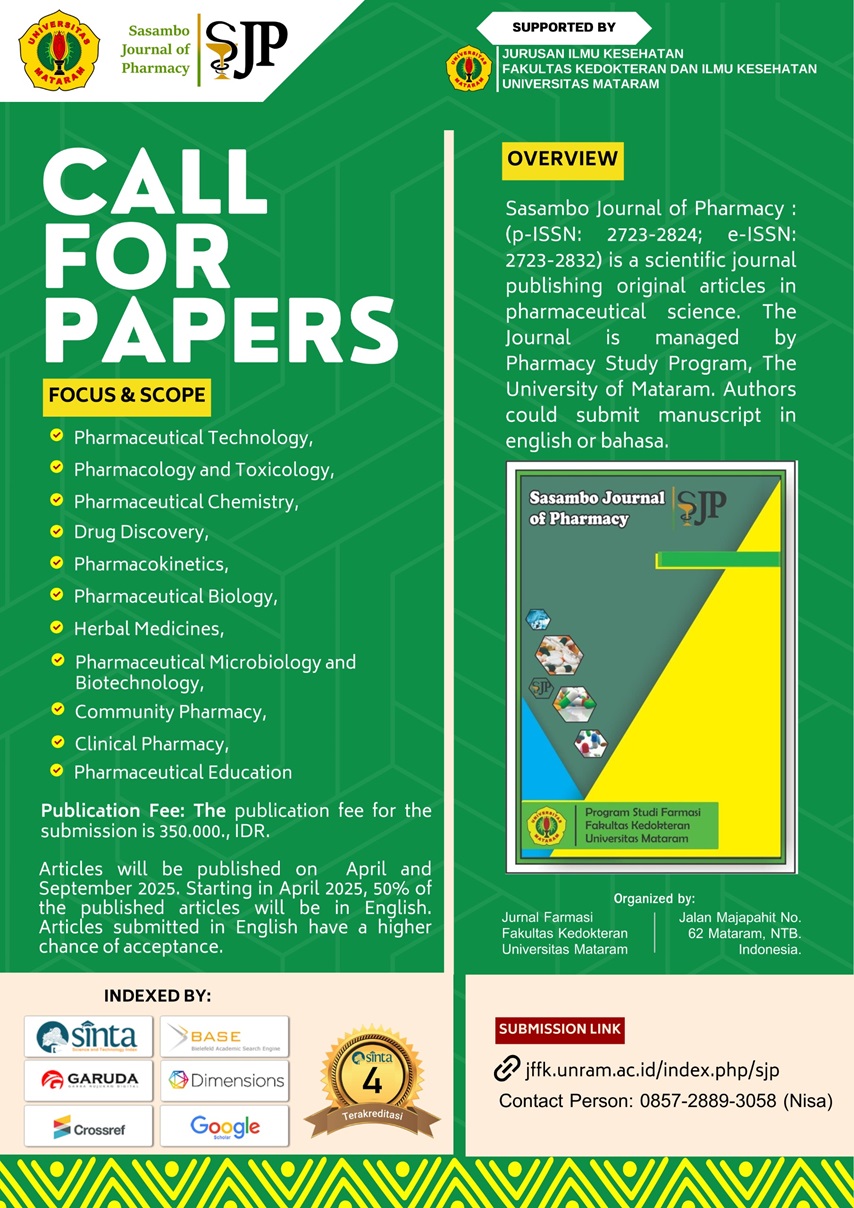Call for Paper
Call for Paper Research Articles to be published in the Sasambo Journal of Pharmacy for the 2025 edition. Submit the articles via link https://jffk.unram.ac.id/index.php/sjp/login

Sasambo Journal of Pharmacy (p-ISSN: 2723-2824; e-ISSN: 2723-2832) is a scientific journal publishing original articles research in pharmaceutical science. The Journal is managed by the Pharmacy Study Program, Mataram University
| Journal title | : | Sasambo Journal of Pharmacy |
| Initials | : | SJP |
| Editor-in-chief | : | apt. Nisa Isneni Hanifa, M.Sc. |
| Online ISSN | : | 2723-2832 |
| DOI Prefix | : | 10.29303/sjp |
| Indexing | : | Google Scholar and view more |
| Peer Review Process | : | Single-blind |
| Frequency | : | 2 issues per year (April & September) |
| Publisher | : | Mataram University |
| Organizer | : | Pharmacy Study Program |
| Citation Analysis | : | Dimensions, Google Scholar |
| Language | : | English & Indonesian |
Sasambo Journal of Pharmacy receives manuscripts in both English and Bahasa with abstracts in bilingual, both Bahasa and English. We're open for various fields such as:
Call for Paper Research Articles to be published in the Sasambo Journal of Pharmacy for the 2025 edition. Submit the articles via link https://jffk.unram.ac.id/index.php/sjp/login

